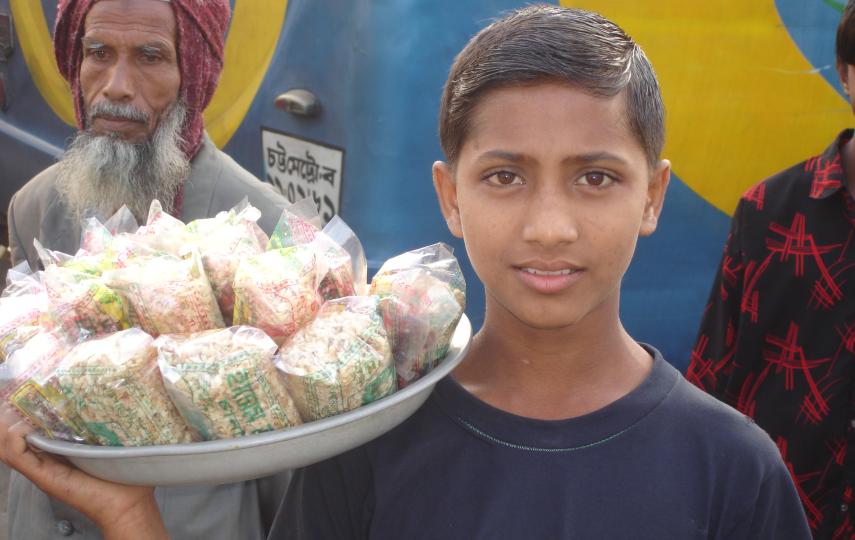“Migration is after all a method of survival,” Herman Zoungrana, head of Tdh’s protection programme in Burkina Faso, told IRIN. He said traditionally after the harvest people would fill up their granaries then set out to find work until the next planting season.
“But with younger and younger girls migrating, the risk of exploitation and violence grows,” he said. Residents told IRIN in many cases parents encouraged their children to migrate – “because here we live in misery”, as one woman put it.
Boys and young men in the region have also long migrated for work, aid workers said. “They generally do petty commerce, gardening or manual labour,” said Zoungrana. “But young girls, around 10 and 11 years old, usually work as domestic servants – work that carries grave risk of exploitation and abuse, including sexual violence.”
“Some the youngest girls – uneducated and often orphaned – make about 2,500 CFA francs [about US$4.70] per month as servants and often they are not fed well,” Marie-Berthe Ouédraogo, UNICEF-Burkina Faso head of protection, told IRIN.
UNICEF and Tdh say the children are also prey to traffickers.
Poverty a driving force
Tdh, which has a team in Toéni department, Sourou Province, says girls generally migrate to the capital Ouagadougou, the second-largest city Bobo-Dioulasso, or to cities in Mali, about 50km north. A 2008 study by Tdh showed that 400 girls left Toéni department for cities between October 2007 and January 2008.
Much of the migration is still seasonal, aid workers say, with people often returning for planting.
As part of its work to promote education and child protection, Tdh meets villagers in Toéni to discuss risks and ways to improve conditions for children in rural areas.
“Poverty is the reason they’re leaving,” Sienou Moufou, a village council member in Louta, told IRIN. “There is no work in the village, for them or their parents."
Savadogo Saydou Mahamady, a former Tdh agent who has worked with villagers on the issue, said: “Parents tell us they recognize the dangers young girls could be exposed to but that either they don’t see alternatives or they don’t feel they have much influence over their children to keep them at home.”
|
Photo: Nancy Palus/IRIN  |
| Village chief and other residents of Louta, northern Burkina Faso |
In some cases status is also a driving force, Ouédraogo said. Families want their girls to make money so they can have special clothes and other items for ceremonies like marriages and baptisms, she said.
But mostly the extra income is about survival, said village chief Ouona Dembélé. “It’s difficult to offer alternatives to migration to these young girls, because there is practically nothing here [in Louta village]. If we could keep some kind of income-generating activities going here, no girls would have to leave the village for the city.”
Many Louta residents said a lack of water severely hampers any development that could improve living conditions.
Villagers said if water were more available, for one, market gardening could thrive and more young people could take part. Aid workers in Burkina Faso told IRIN they have to limit gardening and other agricultural assistance projects for lack of water, a common problem in many regions of the country.
Louta, where farming and livestock are the main economic activities for a population of 2,500, has no health centre or maternity care facility.
np/mw
This article was produced by IRIN News while it was part of the United Nations Office for the Coordination of Humanitarian Affairs. Please send queries on copyright or liability to the UN. For more information: https://shop.un.org/rights-permissions





![The new eco police force would work on creating "a pollution-free environment." [Jordan] The new eco police force would work on creating "a pollution-free environment". [Date picture taken: 05/17/2006]](https://assets.thenewhumanitarian.org/s3fs-public/styles/media_list_fallback_/public/images/20065214.jpg?itok=dSJC8Q89)